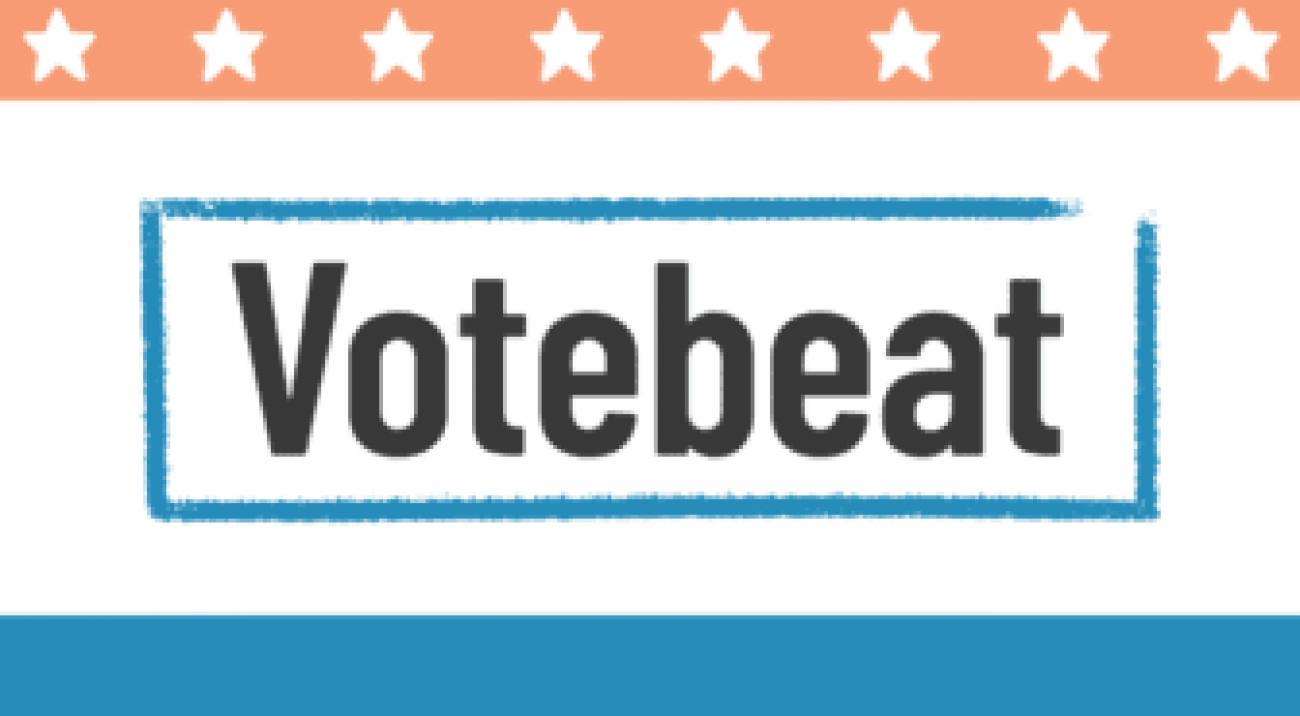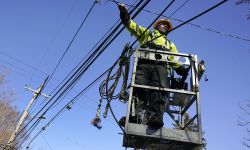Trump called. They answered. GOP army ready to challenge Michigan vote.


Poll challenger training began with the Pledge of Allegiance and a prayer of gratitude for the United States’ system of government last month at a church in Waterford Township, an Oakland County suburb.
Then came a call to action.
“Everybody in this room understands that election fraud is something that we want to make sure that we’re stopping,” Tim Griffin, the training leader and special counsel with the Thomas More Society, a conservative law firm in Chicago, said during the Sept. 26 training session.
“That’s what we’re here to do today.”
The session was led by the Election Integrity Fund, a nonprofit that unsuccessfully sued Secretary of State Jocelyn Benson this year for sending absentee ballot applications to voters.
The group has trained at least 500 poll challengers in Michigan, and is one of several conservative organizations that have answered the call from Republican President Donald Trump to monitor the elections.
Trump has spent months raising unsubstantiated claims of voter fraud including attacks on mail-in ballots and allegations that Democrats will “steal” the election. In September, his campaign announced an effort to launch an army of 50,000 poll watchers in battleground states on Nov. 3 to ensure “an honest and fair election and to re-elect President Trump” according to a campaign video.
Experts such as those with the Brennan Center for Justice in New York say evidence of voter fraud is extremely rare — but the spectre of it can discourage people from voting. And Democrats fear a surge of poll challengers could be tantamount to voter intimidation and interfere with vote counting.
Southeast Michigan, and Detroit in particular, will be ground zero for challengers, Griffin said during the training.
Political parties and accredited organizations have the right to delegate one challenger per absent voter counting board and up to two per precinct.
Brenda Savage, a spokesperson for the Election Integrity Fund, said these challengers will serve as “an extra set of eyes” on Election Day to guard against irregularities.
They have the right to challenge people’s eligibility to vote and raise objections to actions by election workers. But they cannot speak to voters, handle poll books or other election materials.
Detroit faces scrutiny after GOP challengers filed affidavits after the August primary, alleging a host of worker errors, including using cellphones when prohibited and counting ballots without checking against voter names in poll books.
That’s not evidence of fraud, voting advocates say.
“The early August primary wasn’t necessarily the most smooth,” said Aghogho Edevbie, the Michigan director of All Voting is Local, a national voting rights advocacy group. “But not smooth doesn’t equate to fraud.”
Jonathan Kinloch, a Democratic member of the Wayne County Board of Canvassers that certified Detroit’s election, said the allegations are irresponsible.
“Some people want to cause mayhem because the election is not going their way,” he said. “They would not be caught claiming fraud if their candidate won in Detroit.”
‘The nation’s going to be watching’
Some GOP challengers say they are guardians against disorder, particularly in heavily Democratic cities like Detroit that have a history of voting irregularities.
They’re people like Robert Cushman and Clifford Frost, politically active white men in their 70s from the suburbs of southeast Michigan. Both served as GOP challengers during Detroit’s primary elections.
Cushman, a retired General Motors worker, and Frost, a real estate agent, say they are motivated by patriotism and concerns about integrity.
That propelled them through long hours. Cushman said he was one of the last challengers during the August primary to leave the TCF Center, where Detroit’s 134 absentee voter counting boards gathered to process and count absentee ballots.
Frost said he brought medication and a change of shoes to endure knee pain brought on by 13 hours of standing on a cement floor of the basement where the workers counted the ballots.
Though some city and state election officials have raised concerns about intimidation from poll watchers after Trump urged his supporters to “go into the polls and watch very carefully,” Frost and Cushman said they are friendly.
“We smile and say hello,” Frost said. “It’s always pleasant.”
But they’re anxious about election “cheating,” Frost said. Several trainees raised questions about the most “common types of fraud” to expect on Election Day during the Sep. 26 training.
“The nation’s going to be watching as the president’s team and different groups like our group are going to file suit to make sure that [election officials] follow the law,” Griffin, the Election Integrity Fund training leader, told attendees.
‘Path to victory through Detroit’
Democrats contend politics motivate poll challengers’ scrutiny of Detroit.
Trump won Michigan by 10,704 votes in 2016, and declining turnout in Detroit was a major factor for his upset against Democrat Hillary Clinton.
The city voted overwhelmingly Democratic (just 3.1 percent of voters favored Trump), but turnout dropped 14 percent from 2012, more than 41,500 votes, even as it increased statewide.
The math is clear, said Kinloch: Discouraging votes in Detroit helps Trump’s chances overall.
“The path for a Democratic win runs right through the City of Detroit,” said Kinloch, who is the chair of the 13th Congressional Democratic Committee.
“The more people vote, the more they tend to vote for progressive policy. [The GOP] is afraid of a high voter turnout.”
Republicans including Marian Sheridan, the co-founder of the Michigan Conservative Coalition, said August’s issues are the latest in a series of problems in Detroit that demand vigilance from challengers.
In 2016, worker errors and improper handling of ballots rendered more than half of Detroit’s precincts ineligible for a recount. Michigan law bans precincts from being recounted if the number of ballots in voting machines doesn’t match those in poll books. A 2017 state audit blamed worker training, not fraud.
That year, Garlin Gilchrist II, who is now lieutenant governor, filed for a recount in his campaign against Clerk Janice Winfrey after allegations emerged that poll workers hid absentee ballots.
In August, 72 percent of absentee voter precincts in Detroit were ineligible for a recount because the number of signatures in poll books didn’t match the number of ballots in machines.
Cushman, the GOP poll watcher, alleged he saw workers run 10,000 to 20,000 absentee ballots through tabulators after 2 a.m. on Election Night without checking against voters’ names in the paper poll books. Frost alleged he witnessed the same issue hours earlier and when he objected to elections officials, they responded “that’s OK.”
“All the checks and balances that are supposed to be there just as far as I could see went right out the window,” Cushman told Bridge Michigan.
But election attorneys and officials note that ballots undergo several checks to confirm they are matched to eligible voters before they reach tabulators, including an initial signature verification by city clerk staff.
Robert Brines, 70, a GOP poll challenger at the Detroit primary, said some of the issues from August likely will be resolved by the city’s use of electronic poll books next week and better poll worker training.
But he’s still worried about Nov. 3.
“What’s going to happen this time?” Brines said.
‘Everyone should have confidence’
During the September poll challenger training, Griffin provided volunteers with an overview of rules and responsibilities for election challengers according to Michigan government guidelines.
Poll challengers must have credentials, wear face coverings and be courteous to workers. Challengers are not allowed to interact with voters or wear clothing representing a political party or organization.
Challengers can stand behind election inspector tables, ask to view poll books and other election materials and raise challenges. It’s illegal for them to “frustrate” the process by making frivolous challenges to annoy or delay votes, said Edevbie, the Michigan director of All Voting is Local.
“Challenges cannot be made indiscriminately and without good cause,” he said.
This year, the process is complicated by the coronavirus pandemic, which has killed more than 7,200 in Michigan.
State elections officials have instituted a rule requiring challengers to stand more than 6 feet away from poll workers, prompting a lawsuit from Steve Carra, a Republican candidate for the state House in southwest Michigan.
He said he’s worried that poll workers will set up tables with less than six feet of space behind them, making it impossible for poll challengers to view voter information.
“It’s going to create tension between election officials, the vast majority of whom are looking to do honest and fair work, and the poll challengers who want to be able to participate as well,” he told Bridge.
Jake Rollow, a Department of State spokesperson, called the lawsuit a “frivolous … attempt to gain media attention and falsely attack the integrity of Michigan elections.”
‘You may be a witness’
Republican challengers say they’re only interested in upholding the integrity of the election. Sheridan said challengers focus on a “pattern of errors.”
At last month’s training, Griffin, the training leader, told attendees to take copious notes and know that lawyers would be present.
“You may be a witness in a court case,” Griffin said, adding the Election Integrity Fund and the president’s legal team may file suits demanding recounts.
Frost said a drawn-out court battle is not the goal for poll challengers and hopes issues and errors can be fixed in real time on Election Day.
“I would think that all Democrats and all Republicans, all people concerned, want to make sure that we have the best possible election integrity that we can get in November, so that whatever the will of the people is, it’s accurately reflected in the vote,” Cushman said.
Edevbie emphasized the presence of poll challengers should not call into question the integrity of election administration across the state and the country.
“While I think it is legitimate to have concerns over the election process, it's important to understand that having concerns doesn't mean [the election] will be fraudulent,” he said. “Everyone should have confidence in the security and accuracy of the election returns.”
This article is made possible through Votebeat, a nonpartisan reporting project covering local election integrity and voting access. This article is available for reprint under the terms of Votebeat’s republishing policy.
See what new members are saying about why they donated to Bridge Michigan:
- “In order for this information to be accurate and unbiased it must be underwritten by its readers, not by special interests.” - Larry S.
- “Not many other media sources report on the topics Bridge does.” - Susan B.
- “Your journalism is outstanding and rare these days.” - Mark S.
If you want to ensure the future of nonpartisan, nonprofit Michigan journalism, please become a member today. You, too, will be asked why you donated and maybe we'll feature your quote next time!




